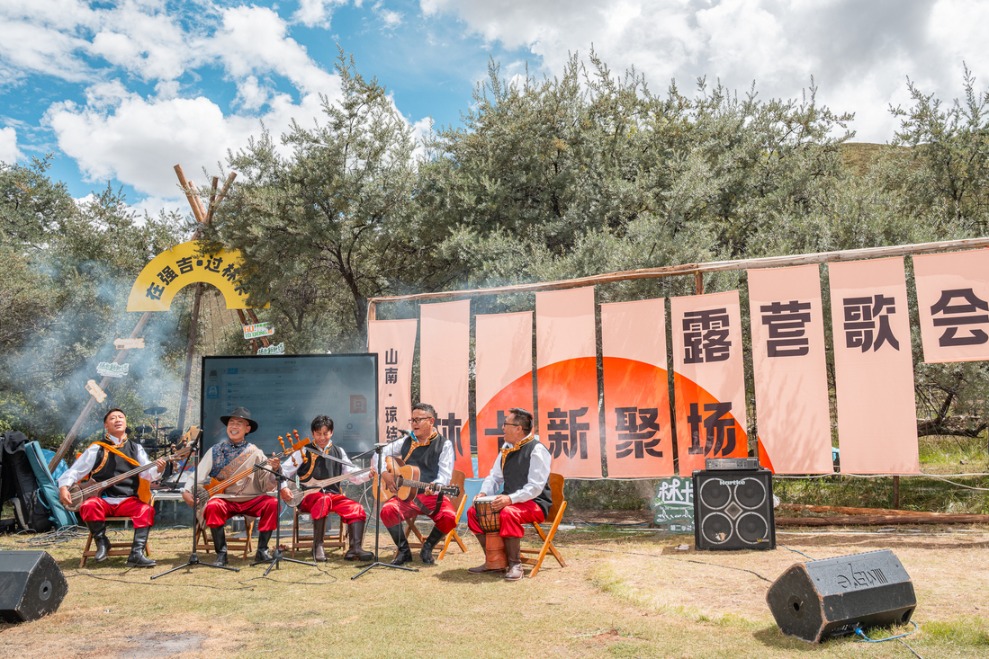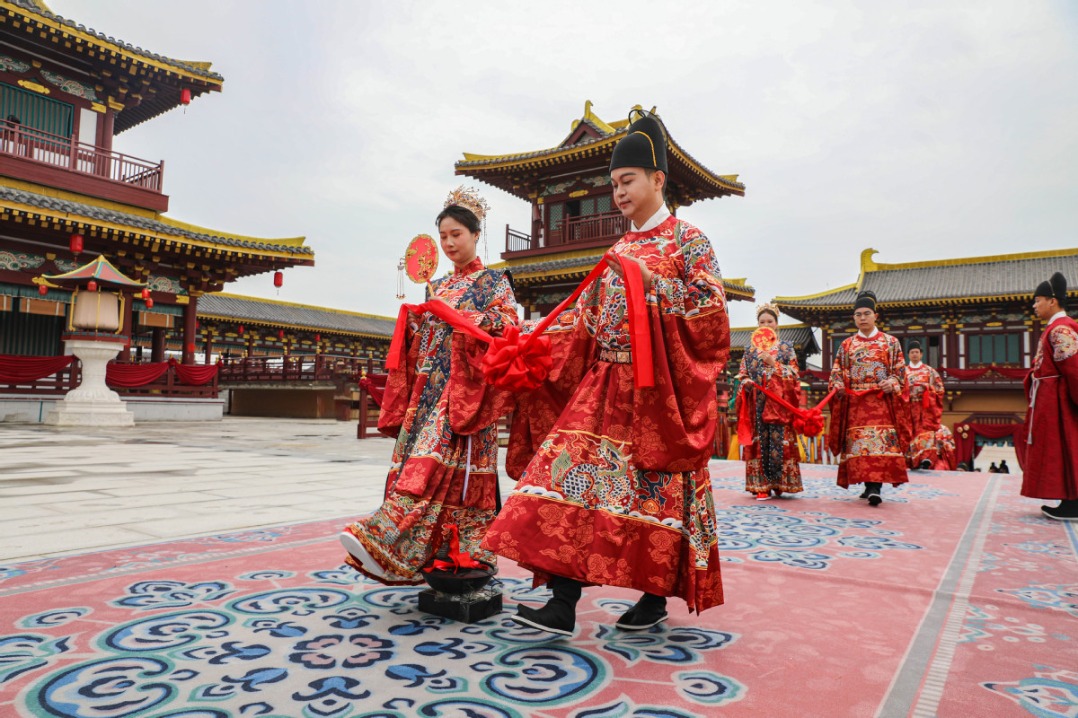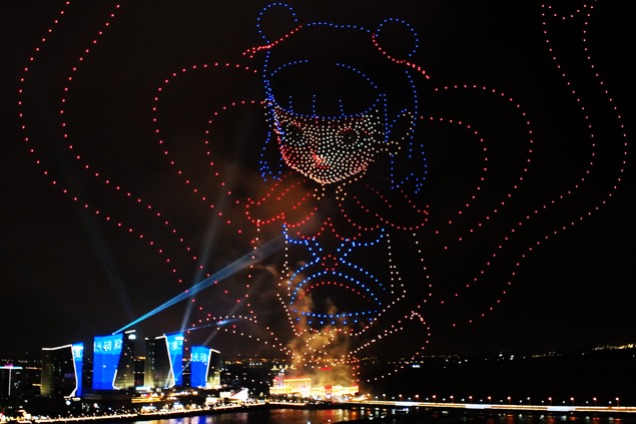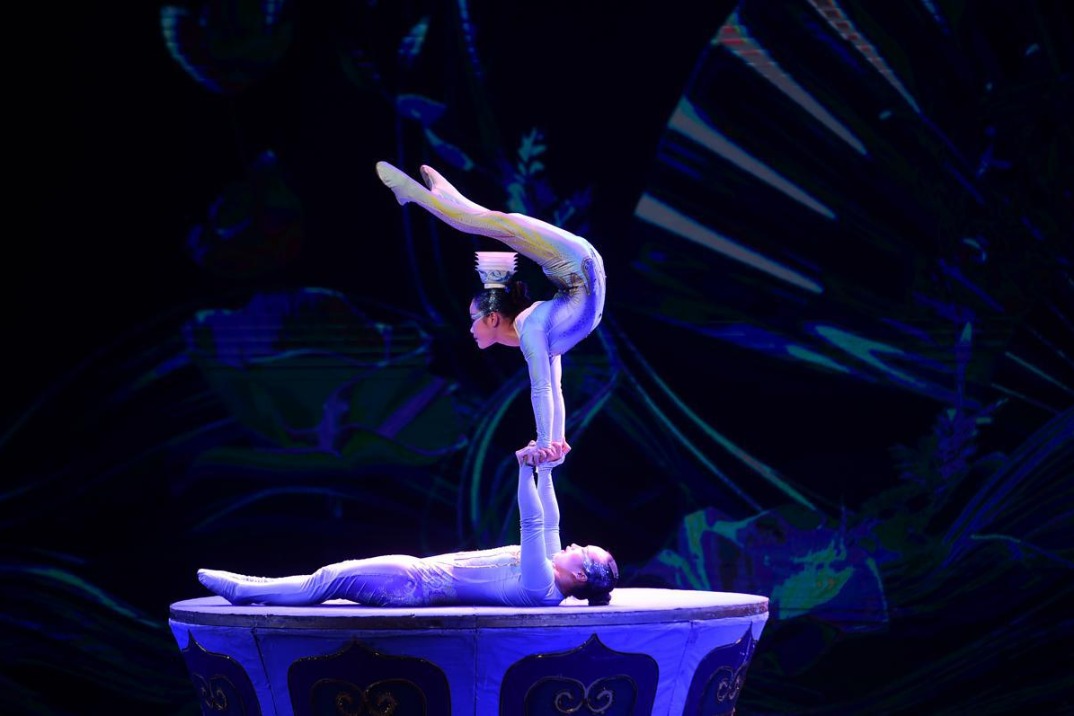Central conference on work related to foreign affairs is held in Beijing, Xi Jinping delivers important speech

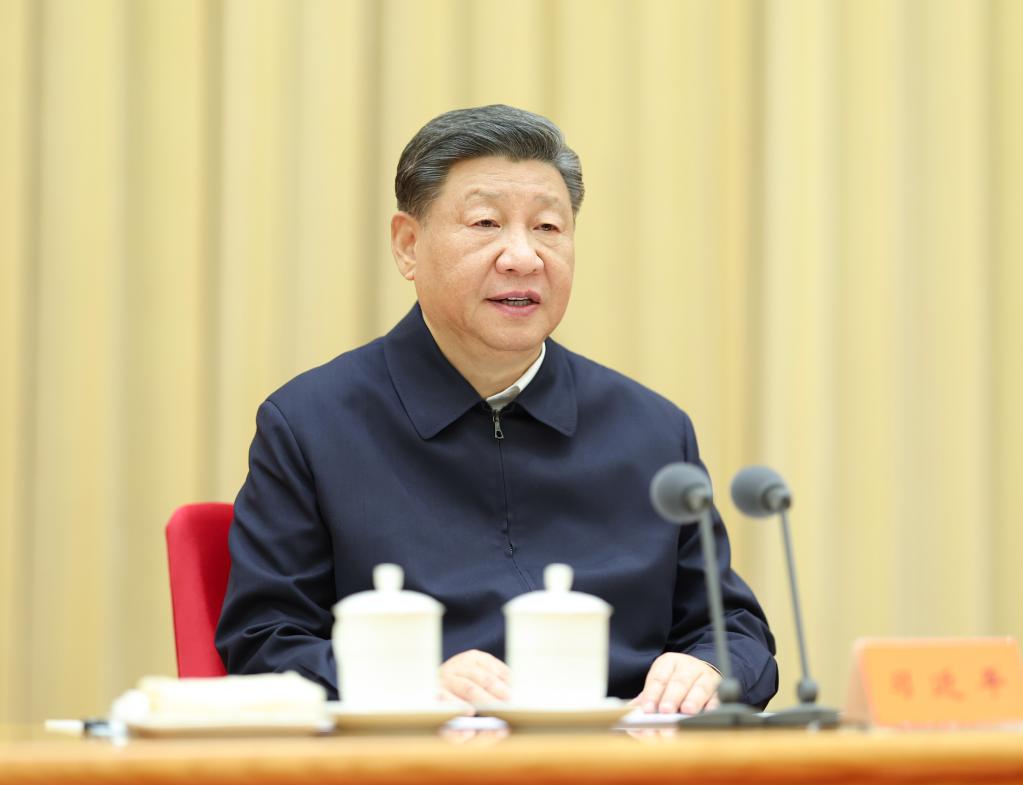
The Central Conference on Work Related to Foreign Affairs was held in Beijing from Dec 27 to 28. Xi Jinping, general secretary of the Communist Party of China (CPC) Central Committee, Chinese president and chairman of the Central Military Commission, attended the conference and delivered an important speech. Li Qiang, Zhao Leji, Wang Huning, Cai Qi, Ding Xuexiang, and Li Xi, all members of the Standing Committee of the Political Bureau of the CPC Central Committee, as well as Chinese Vice President Han Zheng, attended the conference.
In his speech, Xi systematically reviewed the historic achievements and valuable experience of the major-country diplomacy with Chinese characteristics in the new era. He profoundly illustrated the international environment and historical mission faced by work related to foreign affairs in the new journey, and made comprehensive arrangements for current and future work in this regard. Li Qiang, while presiding over the conference, stressed the need to better carry out work related to foreign affairs in the new journey under the guidance of Xi Jinping Thought on Diplomacy, and put forward requirements for studying, comprehending, and implementing the guiding principles of Xi's speech.
It was agreed at the conference that since the 18th CPC National Congress, historic achievements and transformations have been made in the work related to foreign affairs during the course of advancing the cause of socialism with Chinese characteristics in the new era. First, we have established and developed Xi Jinping Thought on Diplomacy, and opened up new vistas for China's diplomatic theories and practices, and provided the fundamental guidelines for promoting the major-country diplomacy with Chinese characteristics in the new era. Second, We have showcased the distinct characteristics, style, and ethos in our diplomacy, established China's image as a major country with a global vision featuring confidence and self-reliance, as well as openness and inclusiveness. Third, we have advocated the building of a community with a shared future for mankind, pointing out the right direction for common development, long-term stability, and mutual learning of civilizations in the world. Fourth, we have followed the strategic guidance of head-of-state diplomacy, making China an increasingly important and constructive player in international affairs. Fifth, we have taken a holistic approach to managing relations with various parties, with a view to building a major-country relationship paradigm featuring peaceful coexistence, overall stability, and balanced development. Sixth, we have expanded the strategic layout of our foreign relations, forming a wide-ranging and high-quality network of global partnerships. Seventh, we have promoted high-quality development of the Belt and Road Initiative, establishing the most broad-based and largest platform for international cooperation. Eighth, we have worked to secure both development and security, and effectively upheld China's sovereignty, security, and development interests with a firm will and an indomitable fighting spirit. Ninth, we have actively participated in global governance, navigating the reform in global system and order. Tenth, we have strengthened the centralized, unified leadership of the CPC Central Committee, and consolidated great coordination in our work related to foreign affairs.
It was emphasized at the conference that in the new era of the past decade, we have experienced high winds and choppy waters and overcome various difficulties in our work on foreign affairs. We have opened up a new scenario for China's major-country diplomacy with Chinese characteristics, which has significantly boosted the strategic autonomy and initiative of the country's diplomacy. As a result, China has become a responsible major country with increased international influence, stronger capacity to steer new endeavors, and greater moral appeal.
It was underlined at the conference that we have accumulated valuable experience in diplomacy in the new era. We must adhere to the principles and take a clear stand on major issues concerning the future of mankind and the direction of world development to firmly take the moral high ground in the international arena and unite the majority of countries. We must uphold the spirit of independence and self-reliance, guide peaceful development, and promote global stability and prosperity to demonstrate our sense of responsibility as a major country. We must apply systems thinking, understand the overall situation, balance various considerations and take the initiative with a correct understanding of history and of the big picture. We must uphold fundamental principles and break new ground, adhere to the tradition and fundamental direction of China's diplomacy, and actively work to promote innovation in theory and practice. We must carry forward our fighting spirit and resolutely oppose all forms of power politics and bullying to vigorously defend our national interests and dignity. Under the centralized, unified leadership of the CPC Central Committee, various localities and departments should coordinate and cooperate to form a strong synergy, so as to give full play to our institutional strengths.
It was noted at the conference that the world is undergoing major transformation in an accelerated manner, and unprecedented changes of significance to our times and to the future development of the world are taking place. The world has entered a new period of turbulence and transformation. Yet what will not change are the overall direction of human development and progress, the great logic that the world development advances with twists and turns, and the major trend that the international community shares a common future. We must have full confidence in this regard.
It was noted at the conference that looking into the future, China has new strategic opportunities for its development. On the new journey, major-country diplomacy with Chinese characteristics will enter a new stage where we can make more achievements. With focus on the central tasks of the Party and the country, we should seek progress while maintaining stability, uphold fundamental principles and break new ground, and firmly safeguard China's sovereignty, security, and development interests. We should explore new frontiers in both theory and practice of China's diplomacy, forge a new paradigm of China's relations with the world, and raise China's international influence, appeal, and role as a game changer to new heights. By doing all these, we will be able to create a more favorable international environment and provide more solid strategic support for comprehensively advancing the building of China into a strong country and the rejuvenation of the Chinese nation through a Chinese path to modernization.
It was pointed out at the conference that building a community with a shared future for humanity is the core tenet of Xi Jinping Thought on Diplomacy. This tenet, on the basis of our continuous deepening understanding of the laws governing the development of human society, represents China's solution to the questions of what kind of world to build and how to build it. It reflects Chinese communists' worldview, perception of order and values, and conforms to the common aspirations of people around the world. It points out the direction of progress for world civilizations and is the noble goal pursued by major-country diplomacy with Chinese characteristics in the new era. In the new era, the building of a community with a shared future for humanity has developed from a Chinese initiative to an international consensus, from a beautiful vision to substantive actions, from a concept to a scientific system, and has become a glorious banner leading the times forward.
In summary, building a community with a shared future for humanity is to push for jointly responding to challenges and achieving common prosperity among different countries and build a peaceful, safe, prosperous and progressive world. The goal is to build an open, inclusive, clean and beautiful world of lasting peace, universal security and common prosperity. The practical pathway is to push for global governance that features extensive consultation and joint contribution for shared benefit. The guiding principle is to apply the common values of humanity. The basic underpinning lies in building a new type of international relations. Implementing the Global Development Initiative, the Global Security Initiative and the Global Civilization Initiative serves as the strategic guidance, and high-quality development of the Belt and Road Initiative as the platform for application.
It was noted at the conference that, to respond to a series of major issues and challenges facing the world, we call for an orderly and equitable multipolar world and inclusive economic globalization that delivers benefits for all. An orderly and equitable multipolar world is one in which all countries regardless of size are treated as equals, hegemony and power politics are rejected, and democracy is truly promoted in international relations. To ensure that the process of promoting multipolarity is overall stable and constructive, it is essential for all countries to jointly uphold the purposes and principles of the UN Charter, uphold the commonly-recognized basic norms governing international relations, and practice true multilateralism. Inclusive economic globalization that delivers benefits for all is one that meets the common needs of all countries, especially those of developing ones, and address the development imbalances between and within countries resulting from the global allocation of resources. We must resolutely oppose any attempt to roll back globalization and abuse of the concept of security, oppose all forms of unilateralism and protectionism, firmly promote trade and investment liberalization and facilitation, overcome the structural problems that hinder the healthy development of the world economy, and make economic globalization more open, inclusive, balanced and beneficial to all.
It was made clear at the conference that the current and future work on foreign affairs must be guided by Xi Jinping Thought on Socialism with Chinese Characteristics for a New Era, Xi Jinping Thought on Diplomacy in particular. It should serve the goals and missions of Chinese modernization, and follow the principles of self-confidence and self-reliance, openness and inclusiveness, fairness and justice, and mutually beneficial cooperation. Focusing on the theme of building a community with a shared future for humanity, we should strengthen strategic planning in sync with the times, deepen and improve our diplomatic layout, follow a problem-oriented approach, and apply systems thinking. We need to identify the strategic tasks of the country's diplomacy in a more multi-dimensional and comprehensive manner. We need to act with a stronger sense of historical responsibility and a more vibrant spirit of innovation to make new headway in our major-country diplomacy with Chinese characteristics.
It was pointed out at the conference that upholding fundamental principles and breaking new ground in our work on foreign affairs is the natural requirement of making new headway in our major-country diplomacy with Chinese characteristics on the new journey, and of providing a stronger underpinning for Chinese modernization. It is necessary to strengthen the theoretical and ideological competence of the foreign service, deepen the reform of systems and institutions, and promote the building of a contingent of personnel involved in foreign affairs, and continue to make our work on foreign affairs more science-based, forward-looking, proactive and creative.
It was emphasized at the conference that we must unswervingly uphold the CPC central leadership's ultimate authority over foreign affairs, consciously uphold the centralized, unified leadership of the CPC Central Committee, and further strengthen the systems and institutions for the Party's leadership over work on foreign affairs. All localities and departments should keep in mind the big picture and coordinate and cooperate with each other to implement to the letter the decisions and plans of the CPC Central Committee on work related to foreign affairs.
Wang Yi made concluding remarks. Leading officials of the Publicity Department of the CPC Central Committee, the International Department of the CPC Central Committee, the Ministry of Commerce, the Joint Staff Department of the Central Military Commission and Yunnan Province, and a representative from the Permanent Mission of the People's Republic of China to the United Nations gave presentations.
Members of the Political Bureau of the CPC Central Committee, members of the Secretariat of the CPC Central Committee, leaders of the Standing Committee of the National People's Congress, State Councilors, President of the Supreme People's Court, Procurator-General of the Supreme People's Procuratorate, and leaders of the National Committee of the Chinese People's Political Consultative Conference attended the conference.
Also present at the conference were members of the Central Commission for Foreign Affairs, major officials of provinces, autonomous regions, municipalities directly under the Central Government, cities separately listed in the state plan, and the Xinjiang Production and Construction Corps, of the relevant departments of central CPC and state institutions, relevant people's organizations, relevant departments of the Central Military Commission, and of some financial institutions under the direct management of the Central Government, as well as Chinese ambassadors, ambassadorial-rank consuls general posted overseas, and representatives to international organizations.
- Global engineering congress to be held in Shanghai
- 'Lingka' custom in Xizang evolves into new form of cultural tourism, vibrant lifestyle
- From logging to guardianship: How China protects green source of its 'mother river'
- China rescues 10 Myanmar seafarers in South China Sea
- Qingdao sees surge in travelers to S Korea under its temporary visa-free policy
- China's 2025 box office surpasses 2024's full-year gross
















